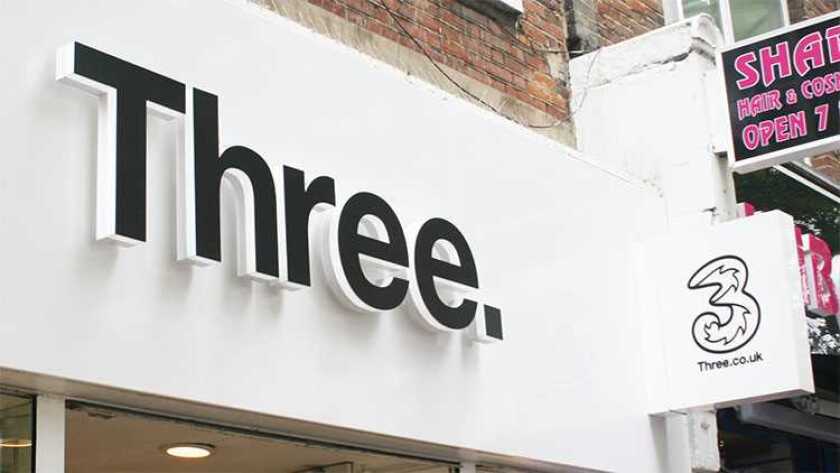Following a Reuters report that a formal announcement on merger plans between Vodafone and Three (CK Hutchinson) is expected in the coming days, the telecoms industry has been awash with debate as to the merits of a tie up. There is also speculation around how receptive the Competition and Markets Authority (CMA) would be.
The merger has been rumoured for a long time; with reports a deal could be worth around £15 billion. Vodafone are expected to own 51% of the combined entity while CK Hutchison will take a 49% stake in the company.
Rationale for the deal
“By combining our businesses, Vodafone UK and Three UK will gain the necessary scale to be able to accelerate the rollout of full 5G in the UK and expand broadband connectivity to rural communities and small businesses,” said Vodafone in a statement.
Three and Vodafone could be left on something of an island in the UK market after the consolidation between BT and EE, and Virgin Media and 02 (VM02) has created two vertically integrated carriers.
“From a commercial point of view, the deal makes sense” James Gray, managing director of Graystone Strategy told Capacity. “Vodafone has strong enterprise accounts and fixed assets that will help with network deployment, while Three have a strong focus on consumers.”
“Whether the deal is approved or not could come down to Vodafone and EE’s ability to convince the CMA that the market is healthier and more competitive with a major mobile player competing against the two vertically integrated competitors,” Added Paolo Pescatore, technology, media & telecoms analyst at PP Foresight.
Regulatory Concerns
A lawyer in the telecoms space, who preferred to remain anonymous, told Capacity that it seems more likely than not that the merger would be approved, although there are many factors that could still come into play. The same lawyer also pointed to the CMA’s decision to block the Microsoft/Activision merger in an industry that has far lower barriers to entry than running a mobile network as a potential red flag.
Fears that moving from four to three MNOs in the UK could cause prices to rise and choice to be restricted by consumers are the major barriers to a deal.
“For the CMA, the equation is likely to come down to how much they take into account the consumer benefits from the promised acceleration to the roll out of 5G, gained through economies of scale versus the competitive risks from concentrating market power,” Dan Ridsdale, director of TMT at Edison Group told Capacity last month.
Many parties are pointing to the blocked tie up of 02 and Three in 2016 by the European Commission as a recent example of the CMA’s thinking.
That decision was found to have little merit by the European Court, who annulled the verdict in 2020 on the grounds that the decision to block the £10.45 billion deal had failed to prove that such a merger would damage competition.
Since the UK’s separation from the EU, a new process would be undertaken, although the UK did advise the European Commission to block the deal in 2016.
Whether a merger is approved this time depends on whether enough has changed in the market since 2016.
Gray thinks that enough has changed. He also points to successful mergers at home and overseas such as the VM02 tie up in the UK and a merger that completed in Ireland.
Impact on the UK market and investment in 5G
“When the 02/Three deal was approved in Ireland, the regulator insisted on increasing competition by issuing additional MVNO licences,” Gray said.
These steps are less necessary in the UK, which has a healthy MVNO ecosystem. Commentators have suggested that wholesale would remain a core principle of all three MNOs business plans in a consolidated market. The added competition from a customer service and low-cost tarrif perspective that MVNO’s would offer could help address fears of predatory pricing.
“The government has an interest in the UK becoming a 5G powerhouse. It’s expensive technology and the economies of scale of a merger would allow for greater investment in consumer and enterprise 5G deployment,” Gray continued.
But it’s important to remember that this investment will require a long-term view. For the deal to be approved and for the consolidation of Vodafone’s and Three’s operations and network to be achieved would likely take a number of years.
Erhan Gurses, equity research analyst at Bloomberg Intelligence, also thinks the odds have improved. “These carriers lack the scale to earn their cost of capital, according to local telecom regulator Ofcom. If a deal can manage to pass all regulatory hurdles, it promises cost synergies worth as much as £2.7 billion in net present value, we think. And that underscores partly why Vodafone and Hutchison have been pushing hard to strike a deal.”
Gurses and others do point to the fact that the UK government might be cautious of Three’s parent company, Hong Kong based CK Hutchinson, taking a 49% stake in one of the countries three MNOs. The UK and other Western Countries have expressed heightened caution against companies linked to China recently, such as the effective ban of Huawei equipment in public networks.
But Pescatore is sceptical this will be a significant factor. “Hutchinson has already been present in the UK for a number of years and while it will be a shareholder of a larger company if the deal is approved, it is essentially reducing its stake,” he told Capacity.
Furthermore Hutchinson’s parent company, which is owned by Hong Kong billionaire Ka-Shing-Li, has a significant presence elsewhere in the UK, such as its stake in retail pharmacy chain Superdrug.
Subscribe to Capacity to get the latest on this story as it develops.






